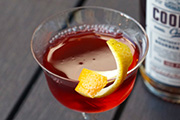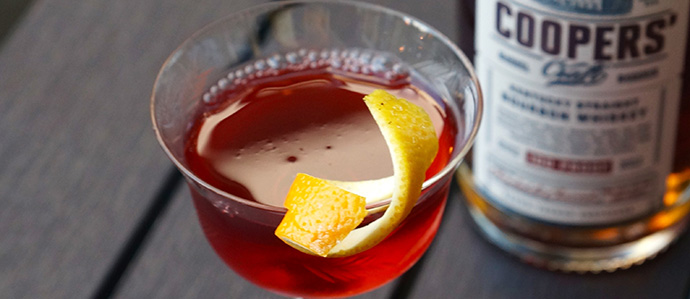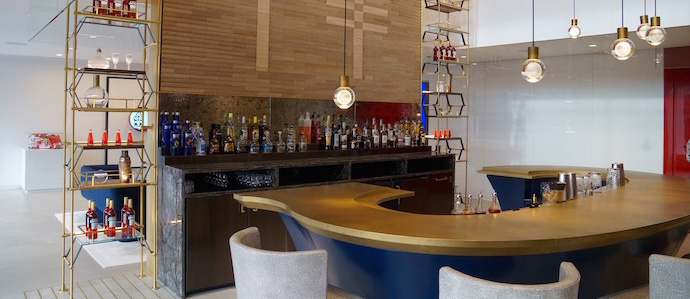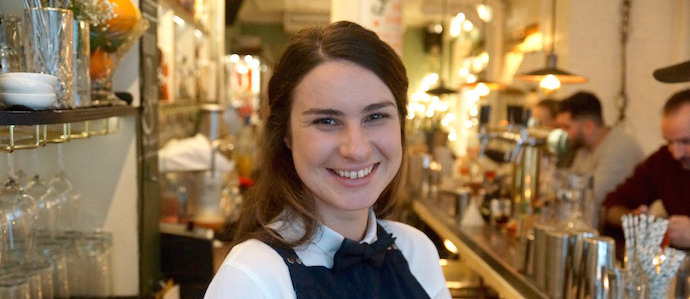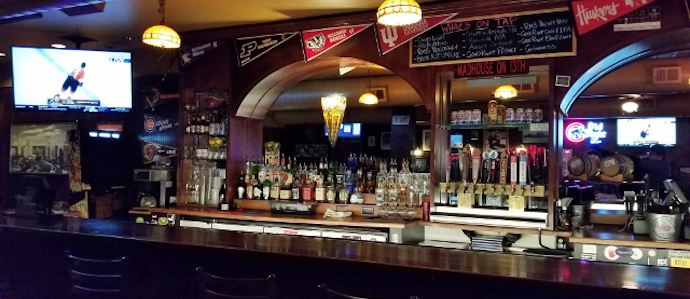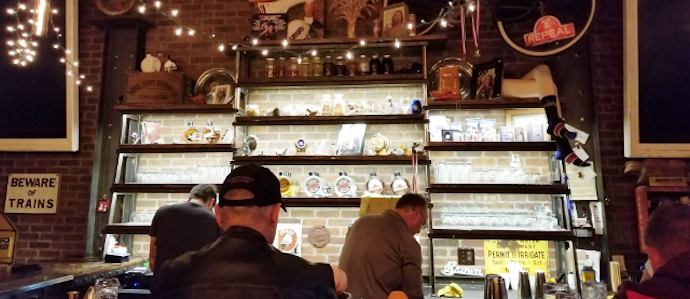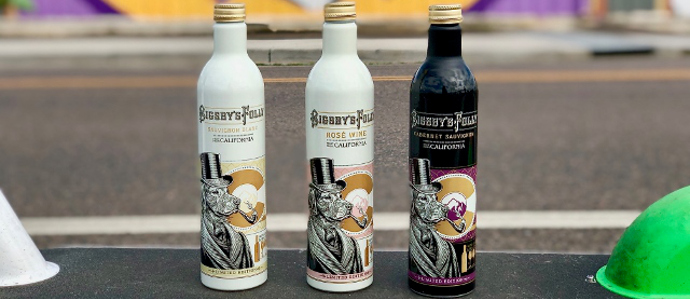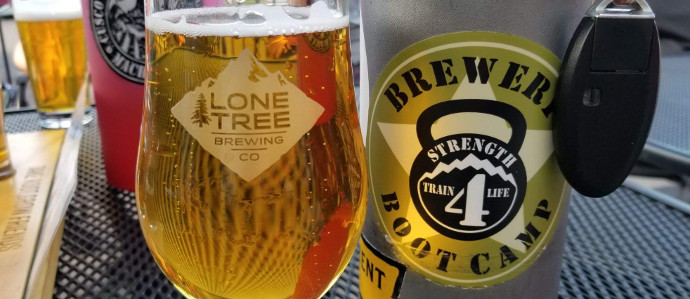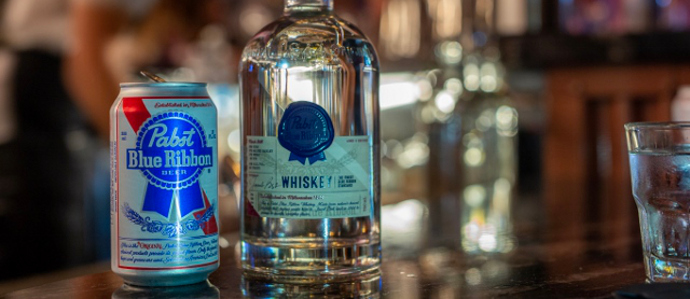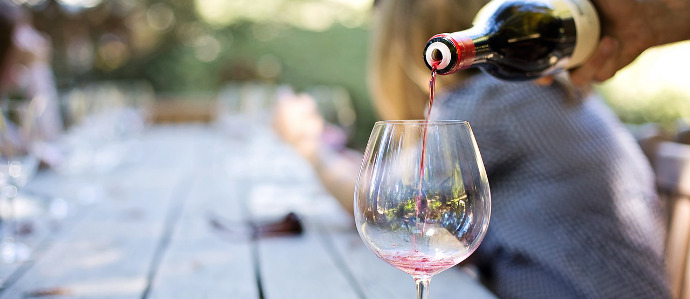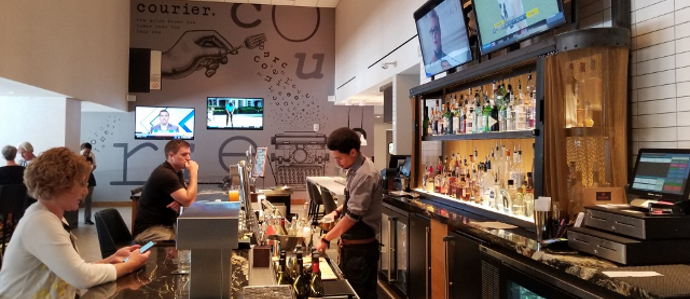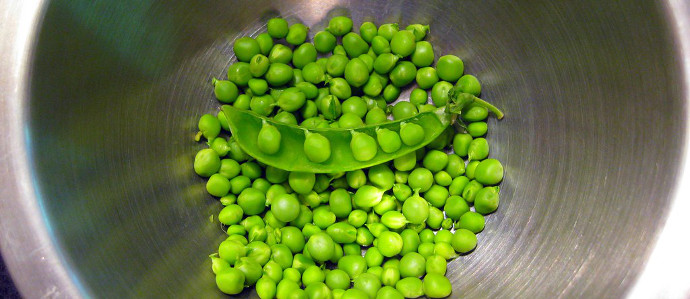Brewers Association Holds Craft Beer Panel at GABF 2017
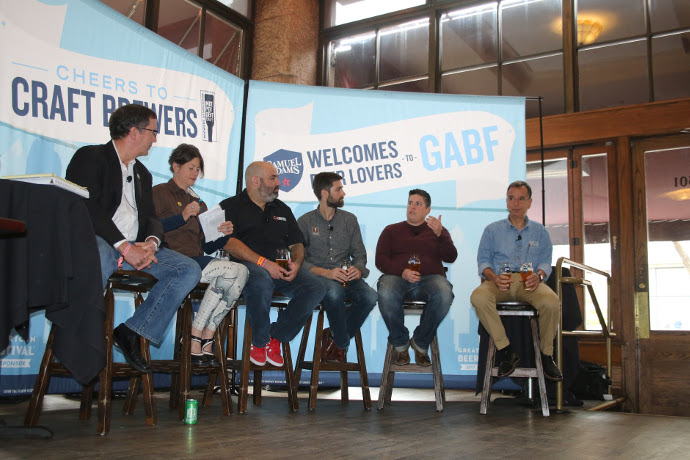
Board members of the Brewers Association participated in a panel at the Samuel Adams Beer Brunch on Friday, October 6, at Marlowe’s in Denver to talk about the state of the craft brewing industry and answer questions about the industry. Brewery members also participated to talk about trends in the craft brewing industry.
Participating in the panel were Bob Pease, Brewers Association President and CEO, Bart Watson, BA Chief Economist and members of the brewing community. They were Sarah Nelson of Fremont Brewing near Seattle, WA, Scott Metzger of Freetail Brewing Company in San Antonio, TX, Julie Verratti,Co-Founder of Denizens Brewing Company in Silver Springs, MD, and Samuel Adams Founder Jim Koch.
“We’re going to talk about the state of the craft brewing - I like to use the word community, rather than industry,” began BA President Bob Pease, “And the challenges our community is facing and the importance of transparency and independence.”
The panel began with some current statistics about craft brewing the US. Pease said that there are currently 5,700 small and independent breweries operating in the US and one new brewery opens somewhere in American about every 11 hours. Those 5,700 breweries have 12.3% of the market share by volume in the US. More importantly, he continues, those breweries have 20% of the US beer market by dollar.
“Those small and independent breweries have created over 130,000 jobs over the last 30 years,” Pease says. “There are not many American industries that can make that claim. Many of those jobs are manufacturing jobs and many of those jobs are in urban environments. We’re seeing many small breweries act as anchors for the renaissance in urban manufacturing.”
Watson also adds these numbers. In the BA’s most recent Total Economic Impact Study, the craft brewing industry in the US is at $68 billon. He also adds that the jobs impact is 456,000 full time public jobs created and includes both breweries and brew pubs and there is $22 billion in wage impact from the industry. While the total beer industry, including big beer, in the US is $350 billon, Watson says the craft brewing boom impacts people on a more local level.
“What’s so great about the impact of small and independent breweries is how finely distributed it is around the country. Eighty percent of 21-plus adults now live within 10 miles of a brewery. That means that there is a direct impact from the breweries that is happening in the community, not just a few large facilities,” Says Watson.
According to Watson, there are many states where the beer industry makes a huge impact in the local economy. “The economic impact [of the brewing industry] of over 21-plus adults is over $700 per person to the Colorado economy, where we are now. You see this in some other states where there is a really dense impact [of breweries]. States like Oregon, Vermont, Maine and this is becoming a bigger and bigger part of the economy in other states.”
Adds Pease, “The American beer landscape is changing. Since 2011, ‘Big Beer’ has caught on to what’s going on and has purchased about 16 former small and independent breweries and that has certainly had an impact on all the things we’ve talked about.”
After this presentation, Pease posed questions for the brewers on the panel.
What are you most excited about in the craft brew community?
Says Julie Verratti of Denizens, “The thing that I get most excited about is the potential for growth in terms of the consumer market. Speaking from my experience in Silver Springs our brewery is in an area where there is a very diverse demographic in terms of who lives there and works there. We have found that a lot of our customer base is not the typical straight white male consumer. We have a lot of diverse customer in our taproom every day from age to gender to race to ethnicity. At 12.3% of the market there is so much growth potential there.”
Adds Scott Metzger of Freetail, “I’m a brewery owner and founder, but I’m also a beer drinker and what excites me more than anything is there has never been the quality of beer that is available today. With that said, there is also some quality that is not up to par, which we need to be concerned about as an industry, but our association has invested millions of dollars each year to educate and provide resources for brewers to improve their quality and it’s exciting to see where the beer world is taking us. It speaks to the innovation that is happening in craft beer.”
Sarah Nelson of Fremont says, “Definitely innovation has been mentioned and craft breweries have the freedom to respond to their consumer and to push the envelope for their consumers and we don’t have a whole panel of senior execs that we have to get a new recipes by, and that’s what I really like is that we are driving innovation and we’ll all learning ourselves as well. It’s not just in beer making, but also in beer production practices. Freemont does a lot of sustainability work and we’re also helping to drive clean energy sectors of the economy. We’re innovators and we support our local economy. Also our spaces provide a gathering place for folks to come and I think more and more we need places where we can come together and celebrate together and the taproom model is a positive.”
What are your collaboration experiences?
Koch, “For us we’ve done collaboration with innovative small brewers and we’ve done collaborations with Weihenstephan Brewery. First of all, it’s the oldest brewery in the world and as a brewer it is a reverential moment to walk up that hill and realize that for 1,000 years brewers walked up that hill to make their beer. This is so cool! When I think about how civilization has changed, but despite all that change, every day brewers walk up that hill to make their beer. It’s also the German brewing university; it’s like the Harvard of beer. It’s considered a national treasure and it’s owned by the Baravian government and it’s also the research institute for the German brewing industry. I had a wonderful experience where this guy called me up and said he was from Weihenstephan and wanted to collaborate on a beer. He said that Germany has this amazing brewing tradition, quality, and knowledge. We all use their equipment; we all built our breweries on the brewing practices there. However, they kind of stopped innovating and he said to me, ‘I just want to wake up my brewers. We in Germany want to create the beer culture that small brewers have created in the United States’. We did something really challenging and we made a champagne-style beer. They have all these really great brews and great technology people. On the other hand I’ve learned from people like Rick [Abitbol of Brewery Rickoli in Arvada, CO]. He explained to me how you make a gluten reduced and virtually gluten free beer. It’s cool to learn from the oldest brewery in the world and from a guy who started brewing just a few years ago.”
Metzger, “The collaboration behind the scenes that we all have to help one another. Teaching each other ways to improve, not just brewing practice, but business practice. It is virtually unheard of in other industries. I came from the oil and gas industry prior to opening a brewery and certainly that kind of collaboration would have led to my termination from my former company.”
Nelson, “We really do help each other out with equipment, etc. It’s when two brewers get together to make a brand new beer and that creative process is so fascinating to watch. It brings us together and it’s an expression of and the perpetuator for the comradery of our industry.”
Why do you choose to remain independent?
Verratti, “Well, to be honest we’re so small and so new even if we didn’t want to be independent nobody’s interested. (Laughs) I’ll answer your question this way, the thing that I appreciate about independence, not just in the beer industry, any type of local small business, when you’re spending your dollars at those business, those dollars are being reinvested back into your local community. If that company does well and they make a profit, they’re reinvesting back in into their company. Their hiring people that live right there and they’re hiring local contractors. That to me is just very near and dear to my heart.”
Metzger, “We have been approached by both private equity and large brewers in the past. The conversations were very short. We told them to take a hike. (Laughs) For us, it’s the ability to not run our business off a spreadsheet from afar, but rather running it by directly engaging in people and listening to their feedback and listening to the feedback of our employees. No one knows better how our company relates to our community than us.”
Do you think independence matters to the beer drinker?
Koch, “It’s like any question you ask three hundred million people, you’re going to get a range. Some people it probably doesn’t matter, at all. So there’s a chunk that doesn’t care, but there’s a chunk in the middle that says, ‘Yes, it matters to me, but it’s not going to be the only thing. I’m going to drink the beer I like, but I’d rather drink beer from a true craft brewer’. And then there’s a third, roughly, that says, ‘Yeah, it matters a lot. When I’m drinking a craft beer, I’m not only drinking the liquid in my glass, I’m buying into a culture, a set of values, identifying with my community and entrepreneurs’. Those fundamental human values matter to me. Big companies are driven by the use of power and efficiency and they are very good at maximizing shareholder value and that’s a good thing. We have a very productive economy because of that, but that is not all there is. There are other values that matter to all of us. Craft brewing exemplifies those other values. Real people, who care about their employees. Consumers sustain us because they identify with who we are.”
What would you say to beer drinkers to inspire them to support independent breweries?
Nelson, “Independence preserves the essence of craft, which is passion in innovation. We were driven by a passion. That means we can push the envelope and make mistakes and lose money on beer and then we can get really lucky and that is just what drives this industry, the trial and error. If we had to have a panel of folks that we had to bring up every new recipe before, that would kill everything. What they [consumers] get in their glass is always new.”
What is the difference between a small brewer and a ‘bought’ brewer?
Verratti, “What ends up happening when a small independent brewery is purchased, they are all of a sudden able to access resources and dollars, and massive marketing teams and massive distribution systems that they didn’t have access to prior to the purchase.”
Metzger, “Echoing that, it’s not necessarily the hard resources, but the influence through their parent company, because they are riding that leverage from certain retail networks. It makes my job competing in my hyper local market more difficult.”
Nelson, “Ingredient pricing is another thing. They have access to much better ingredient pricing because they can buy in bulk and they can underprice their kegs in the market. It creates an unfair playing field.”
Koch, “We had a board meeting in Seattle once and at a nearby neighborhood liquor store they had one shelf for quote/unquote craft beer. Every single quote/unquote craft beer on that shelf was owned by one global company. It’s the facade of choice. You think you’re buying something differently. It’s about transparency. Let the consumer make intelligent decisions.”
What do you love most about beer?
Nelson, “What I love most is the community behind it. Innovation, creativity and comradery.”
Metzger, “Drinking it! And watching how it continues to surprise me and open my mind in different ways.”
Verratti, “While agreeing what everyone else said, I’ll add I’m not a morning person and brewing beer allows me to be my nightowl self and still be successful.”
Koch, “The people in beer are real, colorful, wonderful people. We can all tell stories about the people that we’ve known in beer.”
Photo via Carrie Dow
Tags: Beer, Beer Week




